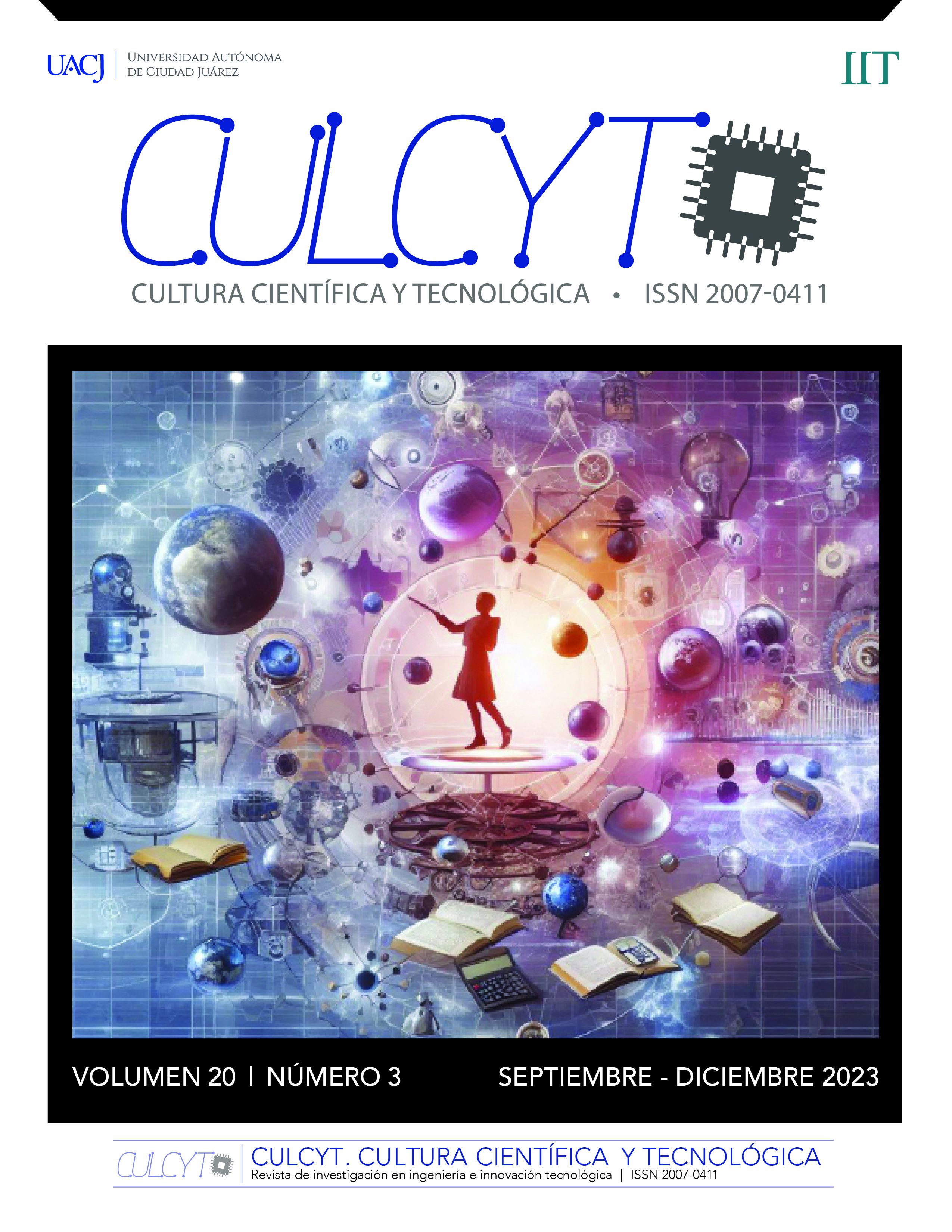The role of undergraduate research in physics education
DOI:
https://doi.org/10.20983/culcyt.2023.3.2e.1Keywords:
undergraduate research, physics, education, graduate studiesAbstract
Research experiences can benefit undergraduate students by providing hands-on experience in research, helping them develop critical thinking, problem-solving and analytical skills. Also, it helps them in establishing professional networking, career exploration, and demonstrable experience for future employers. In this article, the different types of undergraduate research experience that exist are explored. The article annotates several investigations of the benefits of undergraduate research experiences, including two that relate research experiences to the continuation into graduate school. This work also presents statistical data from the author’s university of affiliation, to conclude that undergraduate research is the strongest motivator there is for students to continue with graduate studies.
Downloads
References
H. Thiry, S. L. Laursen, “The Role of Student-Advisor Interactions in Apprenticing Undergraduate Researchers into Scientific Community of Practice,” J. Sci. Educ. Technol, vol. 20, Jan. 2011, doi: 10.1007/s10956-010-9271-2.
J. J. Thompson, E. Conaway, E. L. Dolan, “Undergraduate student’s development of social, cultural, and human capital in a networked research experience,” Cult. Stud. Of Sci. Educ., vol. 11, pp. 959-990, Apr. 2016, doi: 10.1007/s11422-014-9628-6.
H. Walkington, B. Ommering, “How does engaging in authentic research at undergraduate level contribute to student well-being?,” Stud. In High. Educ., vol. 47, pp. 2497-2507, Jun. 2022, doi: 10.1080/03075079.2022.2082400.
J. Gilmore, Mi. Vieyra, B. Timmerman, D. Feldon, M. Maher, “The Relationship between Undergraduate Research Participation and Subsequent Research Performance of Early Career STEM Graduate Students”, J. of High. Educ., Oct. 2016, vol. 86, no. 6, p.834, doi: 10.1080/00221546.2015.11777386.
H. Thiry, T. J. Weston, S. L. Laursen, A.-B. Hunter, “The Benefits of Multi-Year Research Experiences: Differences in Novice and Experienced Students’ Reported Gains from Undergraduate Research,” CBE Life Sci. Educ., vol. 11, no. 3, pp. 260-272, 2012, doi: 10.1187/cbe.11-11-0098.
H. Thiry, S. L. Laursen, A.-B. Hunter, “What Experiences Help Students Become Scientists? A Comparative Study of Research and other Sources of Personal and Professional gains for STEM Undergraduates,” J. of High. Educ., vol. 11, no. 4, pp. 357-388, Oct. 2016, doi: 10.1080/00221546.2011.11777209.
Boyer Commission on Educating Undergraduates in the Research University, “Reinventing Undergraduate Education: A Blueprint for America’s Research Universities,” State University of New York, NY, USA, 1998.
The Boyer 2030 Commission, The Association for Undergraduate Education at Research Universities (UERU), “The Equity-Excellence Imperative: A 2030 Blueprint for Undergraduate Education at U.S. Research Universities,” Undergraduate Education at Research Universities Fort Collins, CO, USA, 2022.
R. S. Hathaway, B. A. Nagda, S. R. Gregerman, “The relationship of undergraduate research participation to graduate and professional education pursuit: An empirical study,” J. Coll. Stud. Dev., vol. 43, no. 5, pp. 614-631, Sept. 2022.
S. H. Russell, M. P. Hancock, J. McCullough, “Benefits of undergraduate research experiences.” Science, vol. 316, no. 5824, pp. 548-549, Apr. 2007, doi: 10.1126/science.1140384.
“American Institute of Physics.” AIP.org. https://www.aip.org (accessed Feb. 18, 2023).
J. Lave and E. Wenger, Situated Learning: Legitimate Peripheral Participation. Cambridge, United Kingdom: Cambridge University Press, 1991.
T. Dahlberg, T. Barnes, A. Rorrer, E. Powell, and L. Cairo, “Improving retention and graduate recruitment through immersive research experiences for undergraduates,” ACM SIGSE Bulletin, vol. 40, no. 1, pp. 466-470, 2008, doi: 10.1145/1352322.1352293.
M. Gagné, E. L. Deci, and R. M. Ryan, “Self-Determination Theory Applied to Work Motivation and Organizational Behavior,” in The SAGE Handbook of Industrial, Work and Organizational Behavior, D. S. Ones, N. Anderson, C. Viswesvaran, H. K. Sinangil, Eds. London, England: SAGE Publications Ltd, chap. 5, doi: 10.4135/9781473914957.
T. J. Weston and S. L. Laursen, “The Undergraduate Research Student Self-Assessment (URSSA): Validation for use in Program Evaluation,” CBE Life Sci. Educ., vol. 14, no. 3, 2015, doi: 10.1187/cbe.14-11-0206.
Downloads
Published
How to Cite
Issue
Section
License
Copyright (c) 2023 Jorge Alberto López Gallardo

This work is licensed under a Creative Commons Attribution-NonCommercial 4.0 International License.
Todos los contenidos de CULCYT se distribuyen bajo una licencia de uso y distribución “Creative Commons Reconocimiento-No Comercial 4.0 Internacional” (CC-BY-NC). Puede consultar desde aquí la versión informativa de la licencia.
Los autores/as que soliciten publicar en esta revista, aceptan los términos siguientes: a) los/las autores/as conservarán sus derechos de autor y garantizarán a la revista el derecho de primera publicación de su obra; y b) se permite y recomienda a los/las autores/as agregar enlaces de sus artículos en CULCYT en la página web de su institución o en la personal, debido a que ello puede generar intercambios interesantes y aumentar las citas de su obra publicada.



